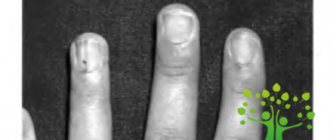- October 12, 2018
- Psychology of Personality
- Ksenga
In the age of Instagram, it is becoming increasingly rare to meet people from whom you can hear the phrase “I don’t like to be photographed.” But what if you don't like being in front of the camera? Do your friends laugh at your reluctance to be photographed and say that you should go see a therapist? Should you follow the advice of Instagram followers, or should you defend your rights not to appear in front of the camera? Let's try to figure it out.
Photo addiction is a bad habit
No matter what anyone says, the modern tendency to flaunt one’s life is frightening. People have no secrets, and modern people want to share their most intimate moments with others. They describe their emotions in detail and try to photograph everything that happens in life. Is it good? No. A person must have a personal life, which he must learn to protect from prying eyes. This should be done not only by superstitious individuals, but also by all reasonable people. Your neighbors may be interested in knowing what you eat and who you sleep with, but why do they need this information? So that they can gossip behind your back or envy you? The less others know about your life, the better it will be. Therefore, do not make a problem out of a person’s phrase: “I don’t like to be photographed.” What should a person who does not want to appear in front of the lens do? For this question, a person should search for the question on his own. Don't ask friends and acquaintances. They will only laugh at you. Conduct psychoanalysis and find the roots of your problems.
Story 1. Photo from childhood
(Hereinafter - excerpts from the forums)
Painful feelings from childhood may be the reason for your dislike of photography. If parents knew the properties of their psyche and the properties of the child’s psyche, they would be able to predict the reaction. Do everything so that the process of photographing is desirable for the child, and not a source of stress.
For example, my mother took me to the studio to be photographed. If the child is active and spinning, all manifestations indicate the presence of a skin vector in the psyche. They sat him down and told him not to move, but sitting in one position for a long time was uncomfortable, it was out of character for him. Other people's unpleasant hands touch and straighten your hair. The photographer orders: “Don’t move!” The baby crawls, squirms, gets nervous and angry, and the mother is irritated. The mood is ruined.
For the sensitive eyes of a child with a visual vector, the flash hurts the eyes too much, they water and close. If you start squinting, adults are unhappy. I wanted to wear the best outfit, but my mother chose another one. And it's ugly! And the hair was also combed wrong. Simply a nightmare!
A photo shoot can become a real torture for a calm, obedient child with an anal vector. They spin him around like a doll and want him to look alive, happy and cheerful. "Smile!" He so wanted to please his mother, but because of the constant twitching inside, everything protests. They say: don’t look from under your brows, raise your head, but she doesn’t listen at all. The baby is offended, the mother is furious with his stubbornness.
Why is this happening? Maybe adults are so used to putting on masks and playing roles in life? Do they teach their children to pretend? Show what you don't really feel?
Children with a sound vector may simply stop participating in the process. In response to this stress - taking photographs - they mentally travel to distant worlds. Their gaze becomes more and more thoughtful, distant, and inward looking. The screams of adults no longer reach these unearthly distances.
Most often these situations are forgotten as minor episodes from childhood. However, they remain in the unconscious and influence the attitude towards photography already in adulthood. For some, one such stressful situation is enough; for others, it happened several times before the injury took hold.
Therefore, if you absolutely do not like to be photographed, remember your childhood. What was the situation with this in those days? Perhaps this is one of the reasons. In the online training “System-vector psychology” by Yuri Burlan, you will find these traumas and see them through your mental properties. Get the tools on how to fix it, how to love being photographed.
Story 2. Take a picture of me sad!
“I really don’t like cameras and being photographed, because I don’t look good in photos at all. I don’t consider myself scary, although no, I do, but only when I communicate with someone. But no. He seems like quite a nice person. I probably even know why I think so. The thing is, I don't take photos. I’m warped, my eyes are somehow different, my nose is bigger, I won’t say anything about my lips at all. I don’t know who is better to turn to in this case. To a photographer, a psychologist... I even want to cry when I look at my photos. Seriously. It’s probably stupid, but it’s true.”
I read this excerpt from the forum and realized that in all the photos my eyes give me away. They express a state. I used to feel the same way and noticed that the photos were different, but the expression on my face was frozen, always the same. The mask tries to hide what is happening inside. In the photo I am smiling, but my eyes are sad. It is impossible to look at this unfortunate ugly person in the photo. I looked more closely. Do we know each other?
If this is me, then I feel sorry for myself. I don't want to be photographed. I make an effort to try to put on a “worthy face,” but I end up tense—this is a mask of suffering.
This observation served as an impetus for research into the causes and for self-knowledge. I discovered great dissatisfaction with my life. There is definitely something I want to fix.
After the free online training “System-vector psychology” by Yuri Burlan, I came up with a whole list of things I don’t like about myself, in life, that I really want to change for the better. Too much! I wouldn’t have written such a list myself. However, now I have hope that I can change my life for the better. After completing the training, I really changed.
Now I can’t take a photo and it will turn out bad, my eyes glow with happiness. Because there is a loved one and a loving one. The one who protects me, forgives me, waits. A strong emotional connection gives a deep, unshakable feeling of confidence in your special charm. I don't think about what pose to take or how to change my facial expression. Everything happens naturally. Beauty? Ideals? None of this matters. When you are in love, you are always beautiful. This happiness pours from the eyes. Your loved one can be nearby in the photo or stand behind the scenes. But this light cannot be hidden from the watchful eye of the camera.
Light is born inside when it fills you with confidence in the future, that everything is fine now and will be fine in the future. A feeling of kinship of souls, connections with others, a guarantee of security because there are relatives and loving people nearby. Just like when children take pictures of me, when I am absorbed in this mutual acceptance and delight.
What about family photos, where warmth and understanding really reign? How can a person who finds himself in a haven of calm, comfort, among family and friends, turn out poorly in a photo? It doesn't happen like that! When the rear is strong, when “life is beautiful,” then the photographs turn out good.
Story 3. Photo for memory
“...And in my old age I will definitely regret the missed moment. In 50 years, you’ll want to look through your photo album with a toothless smile.”
Have you noticed that the older our photographs are, the prettier and nicer the people in them are? Student photos are good, even if we are “out of shape” in them. Memory creates this eye-pleasing retouching. Looking at our photos twenty years from now, we will be surprised by our beauty and youth. So why waste time? You can already start to admire it! You can ask yourself the question: what do I see in the photo? What do you like and what don’t like about it? Hear yourself.
Maybe it’s the wrinkles and fear of old age that scare you? This perception is completely normal for those with a visual vector. The breadth of their experiences extends from fear of death, fear for themselves to all-consuming love and compassion for others.
You just need to understand where your attention is directed. If it’s on yourself, then fear is inevitable. And if on others, then the happiness of giving love and beauty will drive away all fears.
Everything in the world is fading. And we fade too. But we don’t become less beautiful. Our beauty is not external. As Rabindranath Tagore said: “Beauty can only be touched by the heart.” It is important to understand the value of experience: a person is attractive and glows from within with kindness, wisdom, acceptance of oneself and others. Love directed towards others makes a person happy.
You can turn your desire to please people towards you. Let the idea of delighting another with the contemplation of beauty be born. Enjoy yourself, receive contentment and bring joy to others with a smile. Look at your photos with the eyes of someone who loves you.
Raise your self-esteem
One of the most common reasons why a person does not want to appear in front of the camera is low self-esteem. Have you heard a friend say: “I don’t like to be photographed, but I want to.” This means that the lady is not confident in her abilities, and it’s time for her to think about what doesn’t suit her about her appearance. People who cannot admit their shortcomings are afraid of the camera. You should understand that you will never be a perfect person. But time passes, and you can miss a lot of moments that really need to be captured. Understand that you are a unique person, whose analogue does not exist in this world. There is no need to check with friends about the authenticity of this fact. You need to believe in him. Do you not love yourself for the right reasons? Then practice self-improvement, and your complexes will disappear over time. Do you think you are stupid - read more, think that you have a lot of acne? Go to a cosmetologist. Remember that a way out can always be found, you just need to take one step and start searching.
Traumas from childhood
Why don't people like to be photographed? Psychologists say that parents can impose an inferiority complex on their child, which will then be difficult to eradicate. Do you remember that as a child you often heard the phrase that you have crooked legs, hair like antennae, or that you are too fat? Search through your memories and think about what your parents told you. Remember all the phrases that could somehow affect your self-esteem. Think not only about the words that referred to your appearance, but also about the expressions that your parents used to disparage your abilities. After you write down all the offensive phrases, you will need to work through each of them. For example, as a child, your mother called you fat and said that boys don’t like this type. Remember all your girlfriends who do not have an ideal body, but who were able to find family happiness. Stop being embarrassed by extra pounds and understand that mom was wrong. When you realize this, you will be able to feel good in front of the camera, as the childhood trauma will be processed.
Do you know why you don't like to be photographed? Psychologists explain the reason
How to live for those who hate being photographed and try with all their might not to be in the frame?
If your eyes widen when you see the lens, it’s time to think about your inner feelings.
We are afraid of photographs because of magic
It’s easy to take a successful shot: modern smartphones have a huge number of built-in functions: auto skin correction, red-eye correction, noise reduction and exposure adjustment. Filters will help remove any imperfections, and if even after all the manipulations you consider the photo to be unsuccessful, well, it’s easy to erase it with one click of a button. It’s the same story with a group of people: a rare company will limit itself to one common photo: most likely, you will take a huge number of common selfies, from which you can choose one, the most successful one.
And yet there are people among us who run from the flash like the plague.
“I always look worse in photos than in real life,” says 30-year-old Lisa. “In the frame, I seem to freeze with an idiotic expression on my face, although I think I’m smiling sweetly.”
36-year-old Alexey doesn’t like the photo:
“I’m embarrassed of myself in photographs. I think I look ridiculous and unnatural.”
I wonder if this only applies to photos?
Psychoanalyst Virginie Meggle explains it this way:
“Photography stops time, turns off life in us. Those who lack self-love see only their own shortcomings in such a frozen form. Other people evaluate us less critically than we do ourselves.”
Anthropologist and philosopher Lucien Lévy-Bruhl described the horror of savages before being photographed. They believed that the photo would take away their vitality or even kill them, because a piece of their soul would be immobilized. We are pushed to this idea by various rituals performed using photographs: damage, evil eyes, love spells. For the same reason, many people prefer not to post their photos on social networks: the fear of magical influence from a photo still lives strongly in us.
There are people who have a lot of photos of themselves on their smartphones, but they don’t post them on social networks
We don't live up to our self-image
The idea that something invisible to the eye, something inexplicable is imprinted in the frame, has been alive since the advent of photography, and this is already, for a moment, more than 150 years.
Around this moment, the person faced the question: what am I really like? The fact is that we can only see ourselves in the mirror from the front. In addition, the mirror distorts our image of ourselves: in reality, the mole is on the opposite cheek, and the parting lies in the other direction. The photo depicts us from an unusual side: with a stooped back, that same mole, swollen nostrils, often in unexpected poses, especially if it is not a staged photo.
Such discoveries about your loved one become a real revelation. It is thanks to photography that we get to know ourselves not only from the inside, but also from the outside. And if these views do not coincide, a conflict arises, self-rejection. Yes, precisely in the photo - because there we are worse than in our ideas about ourselves.
Therefore, if a person never likes his image in a photo, it’s worth thinking about: how does he generally feel about himself, how does he evaluate himself?
Veronika Nurkova says that to love photography means to love yourself, to accept your different selves.
Psychologists agree that if you like yourself in different photographs, it means you accept and love yourself in any way.
The fear of photographs lives in everyone, even if he thinks otherwise
If in general the new generation likes to take photos a lot and often, then the formal procedure of photographing for documents still makes many shrink into a ball in advance. Of course: few people would argue that the worst photos are kept by our passports. Therefore, if you think you love yourself in a photo, just think about the 3x4 photo on your driver’s license, work pass or other important documents.
“I have a lot of successful and most beautiful photographs, but I try not to show my passport to anyone. They don’t recognize me at the border; there have already been various checks with questions a couple of times. And all because in all the photos I look like a frightened ferret: my eyes are bulging, my forehead is wrinkled, my face looks like I really want to go to the toilet, and my uncle the photographer told me to sit still. By the way, when I was photographed, I was 15 years old. No one gives less than thirty, it has been verified by more than a dozen people,” shares Elena.
The phenomenon of business photographs is explained by psychologist Veronika Nurkova. The thing is that official photography began in prisons. Such photos had certain criteria: open eyes, ears and forehead, as well as a certain angle. The criminals, according to contemporaries, often made faces, not wanting to be photographed in a manner that would allow them to be found and identified. Traces of this attitude have remained to this day, and during the shooting we shrink, make grimaces, as if we want to deceive the one who is looking at us. As a result, in formal photography we are always tense, scared, unhappy and really don’t look like ourselves.
There is one proven way to take a successful ID photo: imagine that your loved one or someone very pleasant and close is standing behind the lens. You can even ask such a person to stand behind the photographer. You will see: your face will transform in a split second.
“My most successful document photo is on my driver’s license. Although in it I’m generally looking somewhere in the wrong direction, not directly at the camera, but slightly to the side, as if I have a squint. And in general, the photo was taken 10 minutes before the traffic police closed. But I'm so beautiful there! All because I’m happy: it was a long painful day, at first they didn’t accept the exam, and then, miraculously, I received the coveted stamps and passed it all,” shares Lisa.
VELVET
Accept yourself
There are no perfect people in this world. Therefore, you should not strive for the notorious ideal. The phrase often flashes through your head: “I don’t like being photographed.” Psychologists say that antipathy to posing affects individuals who cannot accept themselves. You need to understand that you are a good person with a unique appearance. Yes, you are overweight and have freckles. or your height is below average. And although you can lose those extra pounds, you won’t be able to get rid of freckles or grow bigger. Whatever you can change about yourself, change it. And what you cannot fix, you should come to terms with. Accept yourself for who you are. Realize that if you give up taking photos, you still won't be able to avoid mirrors. Yes, you may not be caught by a photographer, but every day you will have to catch the eyes of hundreds of people. Try to understand that your appearance is unique. Accept yourself for who you are and don't chase an unattainable ideal.
What to do?
First of all, understand what exactly you are unhappy with, what you feel about yourself. Then ask yourself: “At what age did I decide that I was unattractive (or that I was unworthy of the best, unworthy of a good relationship, that I was bad, that I had to earn self-love...)?” Remember who you first heard this from. Is this belief really worth carrying throughout your life?
If you have answered these questions, then you realize that the belief you live with is not your truth. This is something that you heard a long time ago and perceived in your own, childish way. And perhaps this belief helped you a lot when you were little. But now you have grown up. And you have a choice: continue to be faithful to this belief or let it go with gratitude and choose a new belief for yourself that will help you further.
Yes, not everything is so easy, and change takes time. But by changing your beliefs, you become happy, successful, you build wonderful, harmonious relationships, and life takes on new colors.
Love yourself
Have you accepted yourself? Now you should love your reflection. Regardless of whether nature has endowed you with beauty or not, you should love yourself. A person who treats himself well, pampers himself, pampers and cherishes himself is visible from afar. Such a person glows from within and therefore seems attractive regardless of appearance. Are you wondering, “Why don’t I like being photographed?” It means you don't love yourself. A person with high self-esteem, who enjoys looking in the mirror, feels confident in front of the lens, and the camera does not bother him at all.
How to love yourself? Start by pampering yourself with some small gift every day. It could be ice cream on a hot summer day or a delicious bun that you eat with dinner. You can pamper yourself with a warm bath before bed or a free hour of time that you can devote to watching TV series. Any method will do. Once you love yourself, you will understand that there is nothing scary about a camera. After all, a person is afraid not of the photographs themselves, but of the fact that later someone might see the photographs and start discussing them.
I hate being photographed!
There are those among us who run from a photographic lens like fire. For example, 33-year-old Galina. “I don’t like myself in the photo, not because I think it’s ugly. There is just a noticeable difference between the way I see myself and what I see on screen or on paper. And it is not in favor of photography! I think I’m better in life.” Better in real life or worse in photos?
Psychoanalyst Virginie Meggle considers this attitude “more a sign of real freedom than an expression of vulnerability”: why should we force ourselves to fix an image that we don’t like?
I am critical of myself. “Photography stops movement and turns off life in us,” continues the psychoanalyst. – Looking at yourself in such a frozen way causes anxiety, especially for those who lack kindness towards themselves. They see nothing but flaws." And they don’t realize that others may be much less critical of them than they are.
“No one perceives objectively the body we show to others,” adds Elsa Godard, psychoanalyst and philosopher. “We look at it from the inside, and our view is influenced by life experience, today’s mood and much more.” Perhaps time will pass and we ourselves will see the same picture in a completely different way.
I don't want to be an object. To photograph an event or a person is to turn them into objects that can be symbolically possessed, believed the American novelist Susan Sontag. Virginie Meggle does not refute this: “The first mirror in which a child is reflected is the gaze of his mother. So wrote the famous child psychoanalyst Donald Winnicott. A mother who inspires confidence knows that the child's ultimate purpose is to no longer belong to her.
It can be hypothesized that those who do not like to be photographed lacked a loving, gentle, life-giving, liberating gaze that they could absorb. Such people were objects of unconscious, deadening projections that deprived them of freedom.” For them, avoiding the lens means escaping such projections and trying to exist outside the gaze of others.
It's hard for me to find my place. So, Galina doesn’t like herself in photographs, but she regrets that she is not in family albums; her rightful place among relatives is empty. “To refuse a photo means to get rid of yourself, to voluntarily erase yourself from history,” says Virginie Meggle. “And in this case, you should ask yourself: what is it about this place that makes it so difficult for me to be there?” What exactly is the discomfort?
This is the puzzle that we need to start solving if we want to participate in the modern social game of being photographed and photographed.
Sign up for courses
Why don't people like to be photographed? Many individuals do not know how to behave in front of a camera, are embarrassed by lenses, and, as a result, do not like the process of photographing. How to overcome inner fear? You can sign up for modeling courses. At a modeling school, you will be taught how to walk gracefully, take the right poses, and act relaxed in front of the camera. This kind of work on yourself will help you not only overcome your fears, but also learn how to behave in public. You will no longer be ashamed of yourself and your body. When a person is relaxed, he does not worry about how he will turn out in the photo and behaves confidently. Which shots come out best? That's right, natural. The more casual you are, the better. Modeling school will help you overcome your inner complexes, and will also teach you how to look beautiful in photographs in any situation.
Pay attention to your appearance
Does the thought “I don’t like taking pictures” keep you from living normally? What should a girl whose friends constantly take pictures for Instagram do? You need to work on your appearance. Girls often worry that in photographs they will look worse than their friends. Such thoughts do not give the opportunity to relax. How to overcome your fear? Go to the hairdresser and find a more suitable hairstyle, and then go shopping and update your wardrobe. External transformation will not keep you waiting long for internal changes. When a lady is confident that she looks irresistible, she is not afraid that the photo will be unsuccessful. The girl will become bolder and appear in front of the camera more often. And when she is convinced that her new image is no worse than her friends, she will easily reconsider her attitude to the process of photographing. She might even want to start her own Instagram. When there is something to show, a person will not be embarrassed about his appearance.
Negative attitudes come from childhood
Let's go in order now. I am sure: every person is beautiful, unique, everyone has their own charisma, their own charm, their own attractiveness. Why then do so many people, especially women, not see all this in themselves, endlessly lose weight, criticize themselves, scold themselves, tolerate disrespect?
The main problem lies in our negative attitudes, beliefs that we have adopted from our significant others - parents, grandfathers, neighbors, teachers...
Let me give you an example. A girl was born, and when she was very little (maybe she was three or four years old), her parents told her that she was fat and ran funny. They spoke not out of malice, they were touched by their daughter, but the girl was offended by this, it seemed that they were laughing at her. And at one point the girl decides that she is fat, funny, clumsy.
The girl grew up, successfully completed school and college, and got a good job. But her relationship doesn’t work out, she has a lot of complexes, and she’s dissatisfied with her appearance. She doesn't understand what's wrong with her. Why is this happening? Because the girl still lives with the childhood belief that she is fat, funny, clumsy.
And if this belief does not change, then no hairdresser, stylist, or weight loss coach will help her feel attractive and worthy of the best.
Learn to refuse
Do you often have to say the phrase: “I don’t like being photographed?” You should explain your thoughts more clearly to your friends. If you understand that you are not ashamed of your body and do not experience inferiority complexes, then work on your ability to refuse. Good-natured people can't always say no to their friends. Do you fundamentally not want your pictures to end up on the Internet? Give reasons for your position and explain to your friends that their habit of photographing you should remain a thing of the past. Do not make any exceptions to this rule. You don't want to be photographed? This is your right, no one can force you to do what you don’t like. Convey this idea to your friends and make them respect your opinion.
Talk to the photographer
Do you understand that your phrase “I don’t like to be photographed” is not entirely honest? You might love doing this if you knew how to be confident in front of the camera. Don't have time to take a modeling course? Then find a good photographer who will agree to talk with you. From time to time, photographers give lectures to anyone who wants to learn how to be confident in front of the camera. You need to go to a personal meeting or a group lesson. A good specialist will tell you and show you the poses that always turn out well in photographs, and will also tell you what your working side is and what images you should try on. After a detailed analysis of your appearance, it will become clear to you what should be exposed and what would be better to disguise. A good consultation will help you gain confidence and also equip you with all the necessary knowledge to stand at ease in front of the camera.
Have a professional photo shoot
Have you ever visited a professional photographer? Then your phrase: “I don’t like to be photographed” will sound funny. You may simply not know how to stand in front of the lens correctly. A good specialist will help you relax and also teach you some tricks that you can use in the future. A professional photographer will find you specialists who will select for you the image that will highlight your natural beauty. A beautiful hairstyle, proper makeup and good angles will provide you with gorgeous pictures at the end. Such positive experiences will help you gain self-confidence and subsequently feel more relaxed in front of the lens.








